Cancer Biology & Mechanisms
-
Facebook
-
Twitter
-
Linkedin
This category explores the fundamental science behind how cancer begins, develops, and spreads. Articles in this section delve into the genetic mutations, molecular pathways, and cellular processes that drive cancer progression. Topics may include tumor microenvironments, genomic instability, cell signaling, DNA repair mechanisms, and emerging insights into metastasis and inflammation in cancer. By understanding these biological foundations, researchers can identify new targets for future diagnostics and therapies.

Scientists find the key to treating colon cancer
Scientists at Northwestern Medicine have discovered that blocking a protein called GATA6 in mice with colon cancer slowed down tumor growth and helped the mice live longer.

The Best Juice To Drink For A Sore Throat Can Also Help Ward Off Cancer
After a loud concert or an intense sports event, you might notice your throat feeling scratchy or sore from all the shouting and cheering. But sometimes, a sore throat isn’t just from overuse. It can also be a symptom of an underlying infection. Viral infections, such as the common cold or flu, are frequent culprits of a sore throat. Strep throat is caused by a bacterial infection that can also make swallowing painful and speaking difficult.

Silexion Therapeutics’ Preclinical Cancer Candidate Shows Tumor Reduction For Pancreatic Cancer
Silexion Therapeutics Corp. SLXN+1.65%+ Free Alertsreleased data on Wednesday from orthotopic pancreatic cancer models demonstrating that subcutaneously administered SIL204 effectively reduces primary tumor growth and metastatic spread.
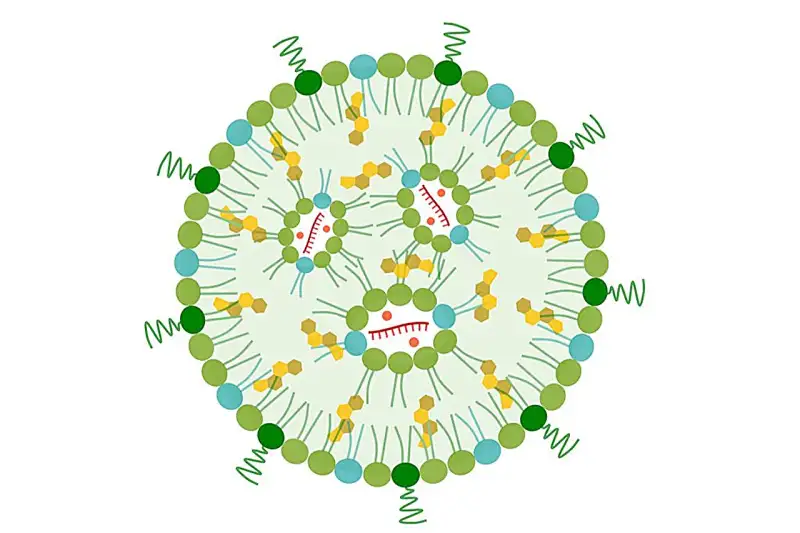
Nanoparticle immune therapy shows potential to halt pancreatic cancer spread
Pancreatic cancer remains one of the most challenging tumors to treat, partly because it is often discovered at advanced stages when the disease has already spread, or metastasized. About half of pancreatic cancer patients experience metastasis to the liver, which worsens the prognosis for an already life-threatening disease.
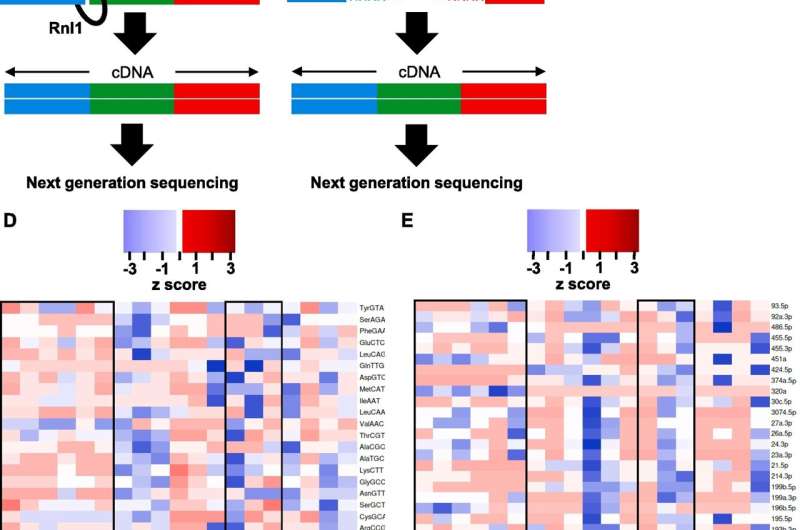
New drug shows promise in treating childhood bone cancer
A new drug that works against the main types of primary bone cancer has been developed by researchers at the University of East Anglia and University of Sheffield.

Double trouble for tumors: Immunotherapy shows promise in prostate cancer treatment
Researchers at the University of Arizona Health Sciences have uncovered a promising new approach for treating prostate cancer through a combination of immunotherapy and a targeted treatment strategy.

Certain genetic alterations may contribute to primary resistance of certain cancers to KRAS G12C inhibitors
The KRAS G12C mutation is found in approximately 3% of all colorectal cancer cases and 1% to 2% of pancreatic adenocarcinoma cases, according to Hao Xie, MD, PhD, a medical oncologist at Mayo Clinic Comprehensive Cancer Center.
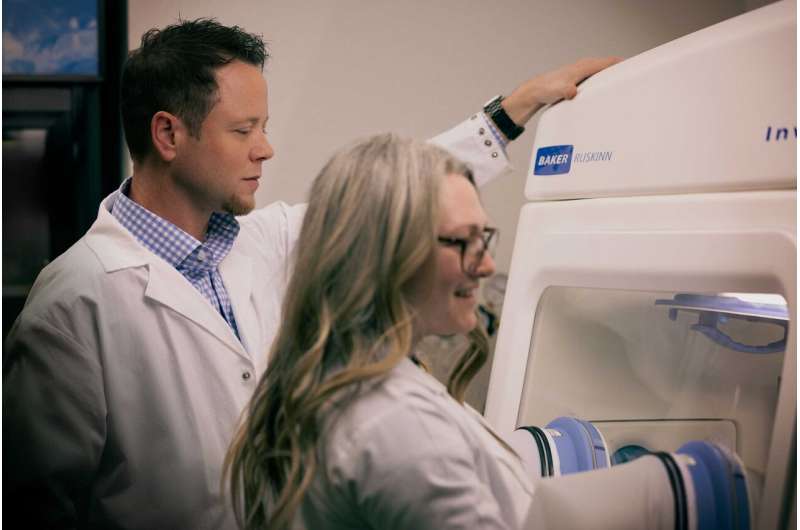
Study finds new potential for prostate cancer immunotherapy
A new study by University of Arizona Health Sciences researchers found that an immunotherapy previously shown to be ineffective against prostate cancer may have therapeutic potential when combined with a synergistic treatment approach. The paper was published in the journal Cancer Immunology Research.
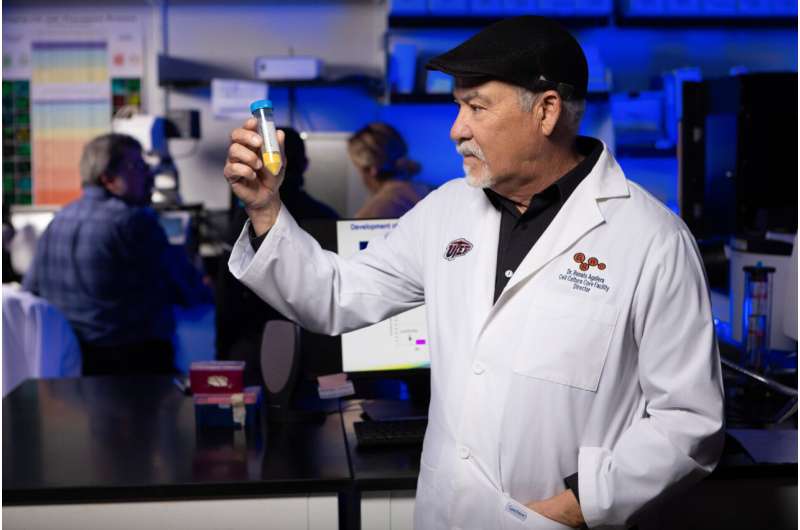
Common malaria drug repurposed to fight cancer
Can a drug that’s used to treat malaria be repurposed to fight cancer? Researchers at The University of Texas at El Paso have secured a patent for the anti-malarial drug pyronaridine to do just that. Pyronaridine has been used to treat the mosquito-borne infectious disease for over 30 years.

Breast cancer drug Supinoxin shows potential for small-cell lung cancer in new tests
Purdue University scientists have identified the Supinoxin small-molecule drug as a possible new therapy for small-cell lung cancer (SCLC).

Common painkiller might help stop cancer from spreading
Most cancer deaths happen not because of the main tumor, but because cancer cells spread to other parts of the body. This process is called metastasis. When cancer spreads, it becomes much harder to treat.

DNA origami offers more accurate imaging in the fight against pancreatic cancer
One of the challenges of fighting pancreatic cancer is finding ways to penetrate the organ’s dense tissue to define the margins between malignant and normal tissue

Root cause of pancreatic cancer and new treatment
Pancreatic cancer is one of the deadliest forms of cancer. A specific type called pancreatic ductal adenocarcinoma, or PDAC, is especially aggressive. Right now, there are no truly effective treatments for this kind of cancer. Sadly, only about 8 out of every 100 people diagnosed with PDAC live longer than five years.

A guide to kinase inhibitors in biotech: From cancer breakthroughs to autoimmune innovations
Kinases regulate nearly every aspect of cellular function – they act as molecular switches, controlling cell signaling pathways involved in growth, metabolism, immune responses, and apoptosis.

Key mechanism behind prostate cancer drug resistance reveals potential new treatment strategy
A team of University of Kentucky Markey Cancer Center researchers has found the mechanism that grants prostate cancer resistance to enzalutamide, a frequently used drug.

New method identifies protein that may govern cancer cell movement and metastasis
Using a novel method that gives a readout of which proteins are in specific locations within cells, UT Southwestern Medical Center researchers have identified a protein that plays a key role in cell adhesion and movement.

Scientists identify key protein driving ovarian cancer spread
A new study has identified the protein ADAMTS5 as playing a crucial role in the spread of ovarian cancer cells, offering a potential new target for future treatments.

Scientists find new structure in DNA repair protein that could help treat cancer
Scientists at the University of Iowa have made an exciting discovery that could lead to new cancer-fighting drugs.

High-fat diet promotes breast cancer metastasis in animal models
Obesity is associated with an increased risk of developing breast cancer, and a greater probability for the cancer to spread to other organs. But the causes of this association are still not well understood.

Drinking more coffee may lower risk of uterine cancer, study suggests
Drinking coffee—especially caffeinated coffee—may help reduce the risk of developing endometrial cancer, a common type of cancer that starts in the lining of the uterus.
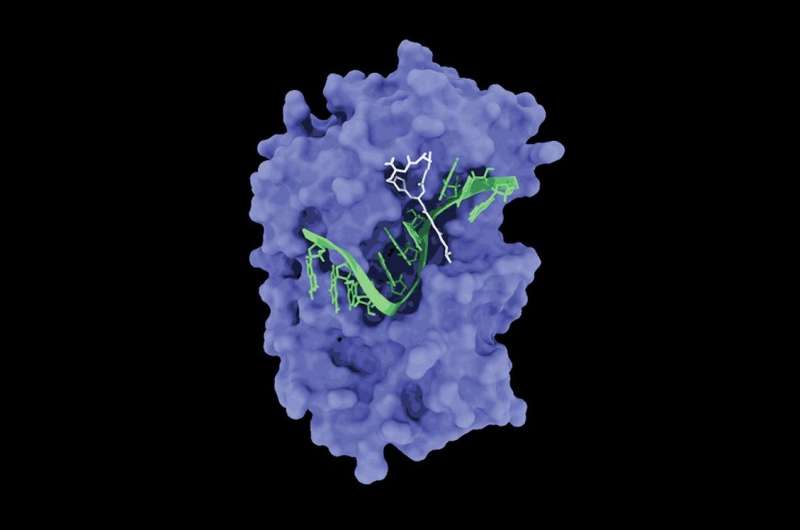
Researchers learn how a drug called zotatifin kills cancer cells
Swirling inside every cell are millions of microscopic messages called messenger RNAs (mRNAs).

Genetic mutation predicts pancreatic cancer metastasis and survival
A new study by Mayo Clinic Comprehensive Cancer Center researchers found that the presence of a specific genetic mutation—KRAS circulating tumor DNA (ctDNA)—strongly indicates a higher risk of cancer spread and worse survival rates for patients with pancreatic ductal adenocarcinoma (PDAC).

Triggering Cancer Cells To Self-Destruct Could Help Tumors to Shrink
Cancer is the second leading cause of death in the U.S., claiming around 600,000 lives in 2022 alone. A diagnosis can be devastating, as the disease can often resist treatment and spreads uncontrollably.

Immunotherapy may boost KRAS-targeted therapy in pancreatic cancer
Adding immunotherapy to a new type of inhibitor that targets multiple forms of the cancer-causing gene mutation KRAS kept pancreatic cancer at bay in preclinical models for significantly longer than the same targeted therapy by itself, according to researchers from the Perelman School of Medicine at the University of Pennsylvania and Penn Medicine’s Abramson Cancer Center.






